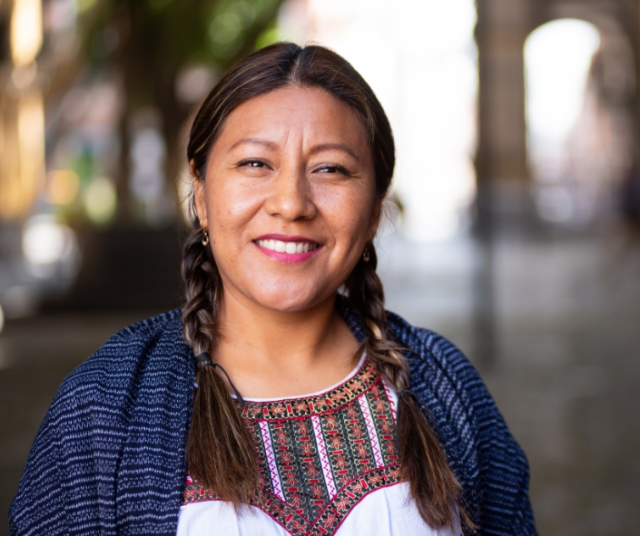Deep within Mexico 's rich cultural heritage lies a celebration that pays homage to indigenous women, guardians of age-old traditions and bearers of ancestral resilience. The Day of the Indigenous Women , celebrated on September 5 of each year, is a significant occasion to recognize and value the fundamental role that indigenous women play in the society, culture and history of Mexico.
The Foundations of a Celebration
Indigenous Women's Day in Mexico emerges as part of a broader movement to recognize and empower indigenous women in Latin America. Although there is no exact start date for this celebration in Mexico, its origin is related to the Conference of Indigenous Women that took place in 1983 in Lima , Peru .
At this conference, indigenous women from various Latin American countries met to discuss issues related to their rights, the discrimination they face, and the need to strengthen their participation in decision-making at the local and national levels. During this event, the creation of the Indigenous Women's Day was proposed as a way to make visible and honor the struggles and achievements of indigenous women.
The conference in Lima marked an important milestone by providing a platform for indigenous women to share their experiences and demands, and network with other activists in the region. This event contributed to raising awareness of the unique challenges indigenous women face, including gender discrimination and ethnic marginalization.
In Mexico, where the indigenous population has a significant and diverse presence, the idea of the Day of the Indigenous Woman resonated deeply. The celebration became an opportunity to recognize and value the crucial role that indigenous women play in Mexican culture, history, and society. In addition, the commemoration also seeks to highlight the efforts of indigenous women in promoting gender equality and human rights in their communities.
Guardians of Tradition and Culture
Indigenous women in Mexico are guardians of a rich cultural tradition that has been passed down from generation to generation over the centuries. From ancient civilizations like the Mayans and Aztecs to contemporary indigenous communities, women have played a pivotal role in preserving customs, languages, and spiritual practices.
In many indigenous communities, women are expert weavers, creating intricate textile pieces that reflect the worldview and history of their people. They are also responsible for passing on tales, legends and ancestral knowledge to the younger generations. Their presence at festivals and ritual ceremonies adds an essential dimension to community and spiritual life.
Challenges and Fights
Indigenous women in Mexico have long been fundamental pillars in their communities, bearers of traditions, knowledge, and values rooted in ancestral history. However, his role has often been accompanied by challenges and struggles that reflect a complex and multifaceted reality. These challenging circumstances are the result of an intersection of factors, including gender discrimination, ethnic marginalization, lack of access to basic resources and services, and persistent social and economic inequality.
One of the most pressing challenges facing indigenous women in Mexico is discrimination based on gender and ethnicity. The double oppression they experience can result in limited access to educational, economic, and political opportunities. This, in turn, can perpetuate a cycle of marginalization and inequality that negatively affects their well-being and the development of their communities.
The lack of access to adequate health services is also a significant concern. Indigenous women often face barriers to accessing quality health care, which can have serious consequences for their health and the health of their families. Lack of information and resources in their native language, as well as discrimination in the health care system, contribute to this inequality in access to health care.
Gender violence is another major challenge affecting indigenous women in Mexico. The combination of culturally entrenched gender stereotypes, coupled with a lack of effective protection measures, leaves indigenous women in a vulnerable position to physical, sexual and emotional violence. Lack of adequate resources and support networks can further hinder your ability to escape abusive situations. In addition, indigenous women often face economic and employment difficulties. Discrimination and a lack of employment opportunities mean that many find themselves working in precarious conditions and with unfair wages. In rural areas, where much of the indigenous population resides, economic opportunities are limited, which can result in a cycle of poverty that affects women and their families.
Despite these challenges, indigenous women in Mexico have shown amazing resilience and unwavering determination. They have been leaders in the fight for human rights and social justice in their communities. Many have stood up for land and natural resources, challenging corporations and interests that threaten their livelihoods and environment. They have played a key role in promoting the education and empowerment of indigenous women and girls, working to change the social structures that perpetuate inequality.
Indigenous women have also been instrumental in preserving and promoting their own cultures. Despite adversity, they have passed on knowledge, traditions and spiritual practices to future generations, ensuring that the richness of indigenous cultural heritage is not lost. His commitment to sustainability and harmony with nature is also an inspiring example for society as a whole.
Indigenous Women's Day is a day of celebration, but also of reflection. It is a time to recognize and appreciate the incredible diversity and strength of indigenous women in Mexico and around the world. It is an opportunity to learn from their wisdom and harmonious approach to nature, as well as to challenge the structures that perpetuate discrimination and inequality.
The celebrations of the Day of the Indigenous Woman in Mexico are varied and significant. From cultural and artistic events to round tables and conferences, Mexican society comes together to honor these remarkable women and to commit to building a fairer and more equitable future for all.
